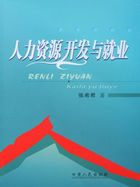The chief distinctions of modern law are well known: 'Common Appendant is the right which every freehold tenant of the manor possesses, to depasture his commonable cattle, levant and couchant on his freehold tenement anciently arable, on the wastes of the manor, and originally on all (common) pasture in the manor. Common appurtenant on the other hand is against common right, becoming appurtenant to land either by long user or by grant express or implied. Thus it covers a right to common with animals that are not commonable, such as pigs, donkeys, goats, and geese; or a right to common claimed for land not anciently arable, such as pasture, or land reclaimed from the waste within the time of legal memory, or for land that is not freehold, but copyhold.'(16*) Common in gross is a personal right to common pasture in opposition to the praedial rights. Mr Scrutton has shown from the Year Books that these terms and distinctions emerge gradually during the fourteenth century, and appear substantially settled only in Littleton's treatise. Bracton and his followers, Fleta and Britton, do not know them. These are important facts, but they hardly warrant the inferences which have been drawn from them. The subject has been in dispute in connexion with discussions as to the free village community.
Joshua Williams, in his Rights of Common,(17*) had assumed common appendant to originate in ancient customary right bestowed by the village community and not by the lord's grant; Scrutton argues that such a right is not recognised by the documents. He lays stress on the fact, that Bracton speaks only of two modes of acquiring common, namely, express grant by the lord, and long usage understood as constant sufferance on the part of the lord amounting to an express grant. But this is only another way of saying that Bracton's exposition is based on feudal notions, that his land law is constructed on the principle 'nulle terre sans seigneur,' and that every tenement, as well as every right to common, is considered in theory as granted by the lord of the manor. It may be admitted that Bracton does not recognise just that kind of title which later lawyers knew as appendancy, does not recognise that a man can claim common by showing merely that he is a freeholder of the manor. Unless he relies on long continued user, he must rely upon grant or feoffment. But the distinction between saying 'I claim common because I am a freeholder of the manor' and saying 'I claim common because I or my ancestors have been enfeoffed of a freehold tenement of the manor and the right of common passed by the feoffment,' though it may be of juristic interest and even of some practical importance as regulating the burden of proof and giving rise to canons for the interpretation of deeds, is still a superficial distinction which does not penetrate deeply into the substance of the law. On the whole we find that the freeholder of Bracton's time and of earlier times does normally enjoy these rights which in after time were described as 'appendant' to his freehold; and it is well worth while to ask whether behind the general assumptions of feudal theory there do not lie certain data which, on the one hand, prepare and explain later terminology, and are connected, on the other, with the historical antecedents of the feudal system.
A little reflection will show that the divisions of later law did not spring into being merely as results of legal reasoning and casuistry. indeed, from a lawyer's point of view, nothing can be more imperfect than a classification which starts from three or four principles of division seemingly not connected with each other. Common appendant belongs to a place anciently arable, common appurtenant may belong to land of any kind; the first is designed for certain beasts, the second for certain others; one is bound up with freehold, the other may go with copyhold; in one case the right proceeds from common law, in the other from 'specialty.' One may reasonably ask why a person sending a cow to the open fields or to the waste from a freehold tenement can claim common appendant, and his neighbour sending a cow to the same fields from a copyhold has only common appurtenant. Or again, why does a plot of arable reclaimed from the waste confer common appurtenant, and ancient arable common appendant? Or again, why are the goats or the swine of a tenement sent to pasture by virtue of common appurtenant, and the cows and horses by virtue of common appendant? And, above all, what have the several restrictions and definitions to do with each other? Such a series of contrasted attributes defies any attempt to simplify the rules of the case according to any clearly defined principle:
it seems a strange growth in which original and later elements, important and secondary features, are capriciously brought together.
In order to explain these phenomena we have to look to earlier and not to later law. What seems arbitrary and discordant in modern times, appears clear and consistent in the original structure of the manor.
The older divisions may not be so definitely drawn and so developed as the later, but they have the advantage of being based on fundamental differences of fact. Even when the names and terms do not appear well settled, the subject-matter arranges itself according to some natural contrasts, and it is perhaps by too exclusive study of names and terms that Mr. Scrutton has been prevented from duly appreciating the difference in substance. He says of the end of the thirteenth century: 'In the reports about this time it seems generally to be. assumed that if the commoner cannot show an especialte or special grant or title, he must show "fraunc tenement en la ville a ques commune est appendant." Thus we have the question: -- "Coment clamez vous commune? Com appendant, ou par especialte,' while Hengham, J. says:















